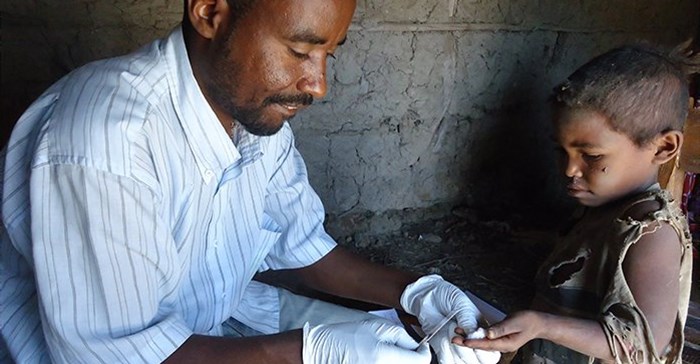Research conducted on a anti-malarial clinical drug candidate, MMV390048, and its efficacy against resistant strains of the malaria parasite, and across the entire parasite lifecycle, with the potential to cure and protect in a single dose, has been published in Science Translational Medicine.
The paper is the first full disclosure of data demonstrating the antimalarial promise of MMV390048 (also known as MMV048), a compound discovered by an international team led by Professor Kelly Chibale at the University of Cape Town (UCT)’s Drug Discovery and Development Centre, H3D, and Medicines for Malaria Venture (MMV).
“The ability of MMV048 to block all life cycle stages of the malaria parasite, offer protection against infection as well as potentially block transmission of the parasite from person to person suggests that this compound could contribute to the eradication of malaria, a disease that claims the lives of several hundred thousand people every year,” said Chibale.
In 2014, MMV048 became the first new antimalarial medicine to enter phase I human studies in Africa. Today, preparations are being made to begin phase IIa human trials on this promising compound as a single-dose cure.
Enormous potential
“This compound has enormous potential,” said Dr David Reddy, MMV’s CEO. “In addition to the exciting characteristics noted, it has the potential to be administered as a single dose, which could revolutionise the treatment of malaria. At MMV, we look forward to continuing our work in partnership with Professor Chibale and colleagues at UCT to pursue the development of this and future next-generation antimalarials.”
Despite the positive impact of medication, indoor spraying with insecticides and the use of insecticide bed-nets, around 429,000 people died from malaria in 2015, mostly in Africa, according to the World Health Organisation’s World Malaria Report.
The paper said resistance to treatment regimens still posed a threat and highlighted the importance of developing treatments containing new chemical classes with different modes of action.











































